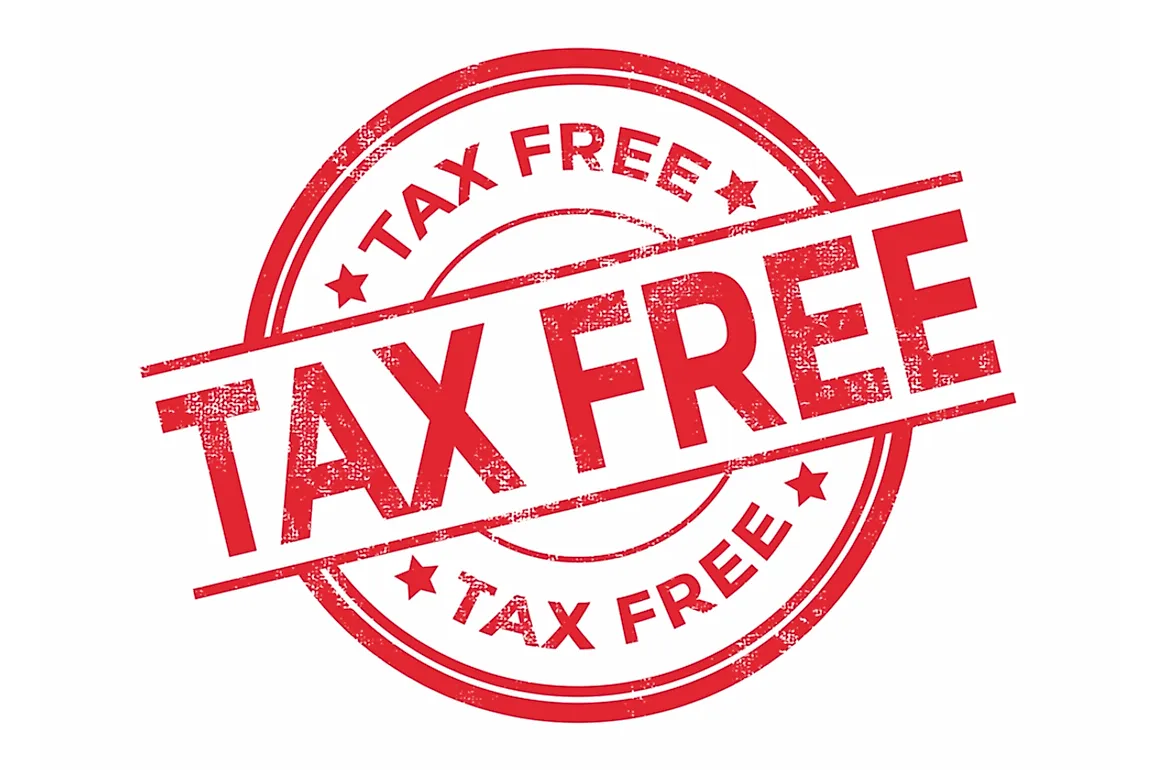States With No Income Tax

Income tax is an important source of revenue for most states in the United States. However, there are seven states in the US that do not impose a tax on the income of the workers in the respective states. The income tax-free states in the US have been seen as a haven for financial growth. The states create better job opportunities for its residents, with better pay. For this reason, there are minimal migrations to other states that somehow levy income tax, because of the working conditions with better pay. The income tax-free states mostly depend on the value-added tax to run most of their economic projects. The seven states that do not impose a tax on their salaries of the working class include the following:
7. Washington
The state of Washington does not have a personal income tax. However, the individuals that have set up their businesses in Washington are subjected to public occupation tax and business and utility tax. Payment of income tax in Washington was passed during the Great Depression. However, the farmers based in Washington protested against the income tax laws and pushed for them to be made lenient or non-existent. Their pleas were heard, and income tax was abolished in Washington. The state now focuses on the collection of other forms of tax to sustain itself and to help it in the development project. The state relies on its 6.5% sales tax for most of its revenues, which is among the highest in the country. The high sales tax tactic has worked well for Washington, generating over $1,500 sales tax per resident in 2011.
6. Nevada
Nevada does not impose any form of income tax to the people working in the state. All workers, both the employed and the self-employed, enjoy the no-income tax benefits. Wages, capital gains, and inheritances are also absolutely tax-free in the state. Income tax in Nevada attracts a lot of people to work in the state. The friendly business environment in Nevada has been responsible to for the state's economic stability. The average property tax in Nevada is also lower than the national rate. The state is managed by taxes such as alcohol tax, property tax, and sales tax. Almost all goods sold in the state are taxable with an exemption of some food products.
5. Wyoming
Wyoming is also an income tax-free state. All workers in the state are guaranteed a full salary, without any forms of tax deductions. The state is sustained by other taxes and revenue from goods such as minerals. The revenue for the state is majorly obtained from the sales tax. The sales tax is set at 4% of the total value of the good. For goods purchased outside Wyoming, then brought into the state, the state will impose a tax of 4% on the total value of the good. The counties in Wyoming are also allowed to add an additional 1% to the levy charged by the state.
4. Texas
Texas has no state income tax, meaning salaries of the people living and working in the state are only subject to federal income taxes. To substitute for the no income tax in the state Texas, the state-federal government collects over 60 different forms of taxes. Among the most beneficial taxes collected in Texas are the property tax and the sales tax. These two forms of taxes contribute largely to the total tax collected in Texas. The sales tax in Texas is relatively high, charged at 6.25% of the total sales. In fact, half of the total tax collected in the state is from sales tax. Tax from sales of motor cars is a major contributor to the huge sales tax the government of Texas collects. Furthermore, to make up for the income tax, the state rarely funds public events and also rarely funds the construction of infrastructure.
3. South Dakota
Considering all forms of taxes in the 50 states, South Dakota is one of the most tax-friendly states in the entire country. Most of the tax rates in the state are usually lower than other states. The sales tax in the state stands at 4% whereas the gasoline tax in the state stands at 22%. Income tax in the state is at 0%. It does not matter whether one is an employer, employee, or is self-employed; no tax is imposed on their income. The main source of revenue for the federal government is mainly from the property tax. There may be some additional municipal sales and tax charged in South Dakota counties and municipalities. However, these additional taxes are still relatively low compared to most states.
2. Florida
Florida is the only state located on the eastern side of the Mississippi that does not collect income tax. The Floridian state constitution prohibits the state from collecting income tax. To make it up for the loss in income tax, the state charges a 6% sales tax on the goods traded in the state. This percentage is slightly higher than the median of sales taxes in the country which stands at 5.75%. Other major taxes collected in Florida, other than sales tax that substitutes for the no-income-tax are corporation tax and property tax. Florida also levies corporation tax for all the corporations that conduct business activities and earn income from the state. However, some of the corporations may be exempted from the tax.
1. Alaska
No employee files income tax returns in Alaska and no tax is imposed on individual income. The state of Alaska also does not collect state sales tax. However, corporations are taxed according to the revenue they generate. There have been unsuccessful attempts in the state to push for the introduction of income tax. Just like the other states that do not collect income tax, Alaska has been depending on other forms of taxation and the revenue from its resources. The lenient taxation rules have seen Alaska attract people to set up their businesses and seek employment in the state. Every Alaskan, both children and adults, each year benefit from the Alaskan Permanent Fund Corporation.











